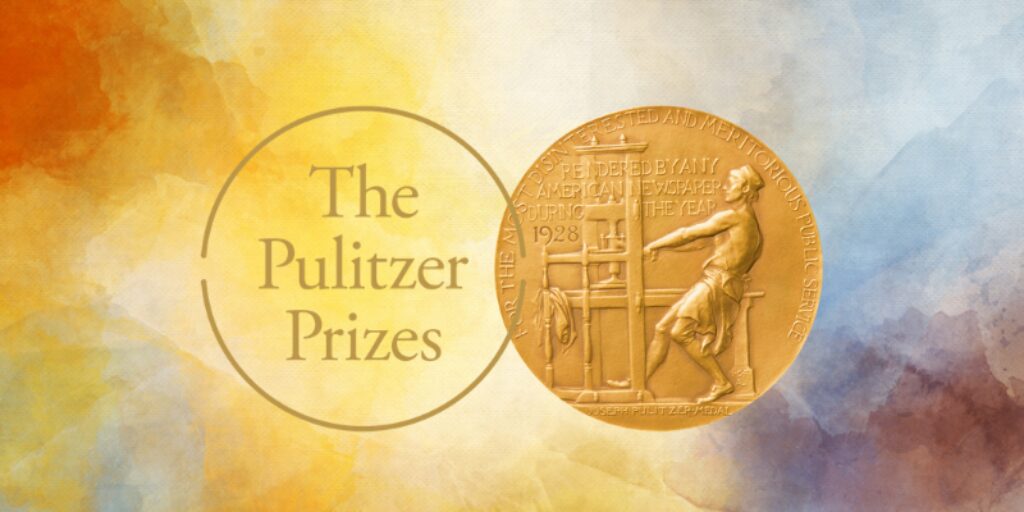The 2025 Pulitzer Prizes have been announced, showcasing outstanding achievements in journalism, literature, and the arts. This year’s winners highlight crucial issues, creative storytelling, and the power of voices that matter. From gripping novels to impactful news coverage, the Pulitzer Prizes winners reflect the state of our society and the challenges we face today.
Key Takeaways
- Percival Everett won the Fiction Award for his novel ‘James’, a fresh take on a classic tale.
- Investigative reporting on the fentanyl crisis earned recognition for its urgency and impact.
- The Washington Post was honored for its coverage of the assassination attempt on Donald Trump.
- Ann Telnaes received praise for her political cartoons, showcasing the power of visual commentary.
- The Pulitzer Prizes continue to highlight diverse voices across journalism and the arts.
Celebrating Literary Excellence
The 2025 Pulitzer Prizes have recognized some truly outstanding achievements in literature. It’s always interesting to see which books and writers get the nod, and this year is no exception. From fiction to poetry, the awards highlight the power of storytelling and the written word.
Fiction Award for Percival Everett
Percival Everett snagged the Fiction award for his novel James, a reimagining of Huckleberry Finn from Jim’s perspective. It’s a bold move to take on a classic like that, and it sounds like Everett really delivered. I’ve heard it gives a fresh and important take on the story, offering a voice to a character who was previously marginalized. Definitely adding that to my reading list.
Non-Fiction Highlights
This year’s non-fiction awards covered a wide range of topics, showcasing the depth and breadth of the genre. Here’s a quick rundown:
- Every Living Thing: The Great and Deadly Race to Know All Life by Jason Roberts won for Biography. It explores the lives of Carl Linnaeus and Georges-Louis deBuffon.
- Tessa Hulls’ Feeding Ghosts: A Graphic Memoir took the Memoir or Autobiography prize. It’s a story about three generations of Chinese women.
- Benjamin Nathans’ To the Success of Our Hopeless Cause: The Many Lives of the Soviet Dissident Movement won in the General Nonfiction category. It’s about the history of Soviet dissent.
Poetry Recognition
Marie Howe’s New and Selected Poems received the Pulitzer for Poetry. The collection draws from decades of work, exploring themes of loneliness, mortality, and holiness in modern life. Poetry can be tough to get into, but it sounds like Howe’s work really connects with the human experience.
Journalism Awards Overview
The Pulitzer Prizes continue to recognize outstanding achievements in journalism, even amidst growing challenges for the media. Marjorie Miller, the Pulitzer Prizes administrator, emphasized the “courageous reporting and impactful storytelling” demonstrated by this year’s winners. It’s worth noting that the announcement comes at a time when journalists face increasing threats, including legal challenges and attacks on their credibility. The United States’ ranking in the World Press Freedom Index has also declined, highlighting the difficulties faced by reporters today. Despite these obstacles, the Pulitzer Prizes serve as a reminder of the importance of a free and independent press.
Public Service Reporting
This year, ProPublica received the Public Service award for their investigation into the tragic consequences of vague “life of the mother” exceptions in states with strict abortion laws. Their reporting highlighted cases of pregnant women who died after doctors delayed necessary care, fearing legal repercussions. The team, composed of Kavitha Surana, Lizzie Presser, Cassandra Jaramillo, and Stacy Kranitz, delivered urgent reporting on a critical issue.
Breaking News Coverage
The staff of The Washington Post earned the Pulitzer for Breaking News Reporting for their comprehensive coverage of the assassination attempt on then-presidential candidate Donald Trump. Their reporting included detailed storytelling, sharp analysis, and the use of audio and visual forensics to reconstruct the event. The Post‘s coverage combined traditional reporting with modern techniques to provide a complete picture of the event.
Investigative Reporting
Reuters was awarded the Pulitzer Prize for Investigative Reporting for their exposé on the lax regulation of fentanyl production and distribution. Their reporting revealed how these oversights contributed to the opioid crisis, making fentanyl a leading cause of drug overdose deaths in the U.S. and abroad. The Reuters team conducted a bold investigation into a complex and urgent issue.
Visual Arts and Photography Winners
Spotlight on Photojournalism
This year’s Pulitzer Prizes recognized some truly outstanding work in photojournalism. Doug Mills from The New York Times snagged the Breaking News Photography award for his gripping series on the attempted assassination of Donald Trump. It’s one of those moments frozen in time, you know? The kind of image that sticks with you. Then there’s Moises Saman, a contributor to The New Yorker, who won for Feature Photography. His black and white photos of Sednaya prison in Syria are just haunting. They really make you think about the horrors people face and the scars left on society. It’s powerful stuff.
Cartooning Excellence
Ann Telnaes of The Washington Post took home the prize for Illustrated Reporting and Commentary. Her cartoons are known for being sharp and fearless. She has a way of skewering powerful people and institutions that’s both creative and insightful. It’s a shame she left the Post after 17 years, but her work this year definitely made an impact. It’s great to see cartoonists getting recognized for their ability to deliver commentary with such deftness.
Artistic Contributions
While photojournalism and cartooning often grab the headlines, it’s important to remember the other artistic contributions recognized by the Pulitzers. This year, the committee highlighted several artists whose work pushed boundaries and challenged conventions. It’s all about celebrating American excellence, right? The Pulitzer Board, which has awarded the top prizes for journalism since 1917, announced the much-anticipated Pulitzer Prizes. The winners were decided by a panel including Anne Applebaum of The Atlantic magazine, Columbia Journalism School dean Jelani Cobb and editor of The New Yorker David Remnick.
Diverse Voices in Music
The 2025 Pulitzer Prizes in Music celebrated a wide range of artists, highlighting the diverse sounds and perspectives shaping contemporary music. It’s cool to see the Pulitzer committee acknowledge so many different kinds of music.
Music Composition Awards
This year’s awards recognized composers pushing boundaries and exploring new sonic territories. The winning composition showcased a blend of classical training with modern electronic elements, creating a truly unique listening experience. It’s always interesting to see how composers are mixing things up these days. The committee seemed to really value innovation this year.
Impactful Performances
Beyond composition, the Pulitzer Prizes also honored performers who brought music to life in powerful and meaningful ways.
- One award went to a performance that highlighted social justice issues.
- Another recognized a group for their interpretation of a classic work.
- A third celebrated a solo performance that was just mind-blowing.
Emerging Artists Recognition
It’s not just about the established names; the Pulitzer Prizes also shined a light on emerging artists making waves in the music scene. These artists are the future, and it’s great to see them getting some recognition. One artist was recognized for their experimental approach to sound design, while another was praised for their songwriting. It’s cool to see the Pulitzer committee looking ahead and supporting the next generation of musicians.
Significant Themes in 2025 Awards
Fentanyl Crisis Coverage
This year’s awards highlighted the ongoing fentanyl crisis, particularly its impact on specific communities. The Baltimore Banner received recognition for its in-depth reporting on the crisis’s effects on Black men in Baltimore. This coverage brought attention to the disproportionate impact of the opioid epidemic and the need for targeted interventions.
Political Reporting Highlights
Political reporting took center stage, with several awards recognizing coverage of significant events. The Washington Post’s coverage of the assassination attempt on Donald Trump was a key winner. This reporting provided a detailed account of the event and its immediate aftermath.
Cultural Reflections
The Pulitzer Prizes also acknowledged works that offered insightful cultural reflections. Moises Saman’s photojournalism for The New Yorker, exposing torture in Syrian prisons, forced viewers to confront the harsh realities of political oppression. Ann Telnaes of The Washington Post won for her cartoons skewering powerful people.
Judging Process and Panel Insights
Composition of the Jury
The Pulitzer Prize juries are a mix of people from different backgrounds. You’ll find journalists, academics, writers, and artists all in the mix. It’s not just one type of person making these calls. The goal is to get a wide range of views when they’re looking at all the entries. They want to make sure they’re not missing anything important. It’s a pretty big responsibility, picking out the best of the best each year.
Criteria for Selection
So, what do the judges actually look for? It’s not just about good writing or a cool picture. They’re looking for work that makes a real impact. Originality, accuracy, and how well the piece serves the public interest are key. They also consider things like how hard the reporting was, or how creative the art is. It’s a tough job because they have to weigh all these things and decide what really stands out.
Challenges Faced by Judges
Being a Pulitzer judge isn’t easy. There are a ton of entries to go through, and they all have to be read or viewed carefully. Judges often talk about the pressure of choosing between so many great pieces. Plus, they have to deal with their own biases and try to be as fair as possible. It’s a lot of work, but they know it’s important to recognize the people doing amazing work in journalism and the arts. It’s a big responsibility, and they take it seriously.
Impact of the Pulitzer Prizes
The Pulitzer Prizes hold a special place in American culture, and their influence stretches far beyond the immediate recognition of the winners. They serve as a benchmark for quality and integrity in journalism, literature, music, and the arts. The awards can shape public discourse, influence policy, and even alter the course of careers. It’s interesting to see how these awards continue to matter so much, even in a world that’s constantly changing.
Influence on Journalism
The Pulitzer Prizes significantly impact the field of journalism by setting a high standard for reporting and storytelling. Winning a Pulitzer can boost a news organization’s reputation and increase readership. The awards often highlight stories that might otherwise go unnoticed, bringing important issues to the forefront of public attention. For example, the fentanyl crisis coverage this year brought much-needed attention to the issue. It’s not just about winning; it’s about the kind of journalism that gets recognized.
Cultural Significance
The Pulitzer Prizes play a vital role in shaping cultural conversations and recognizing artistic achievement. They celebrate diverse voices and perspectives, reflecting the complexities of American society. The awards can elevate works of art and literature to national prominence, sparking dialogue and inspiring creativity. Think about how Percival Everett’s win for James will impact American journalism and literature. It’s a big deal.
Legacy of Past Winners
Looking back at past Pulitzer Prize winners offers a glimpse into the evolution of American culture and the changing priorities of society. The awards create a historical record of excellence, showcasing the best work of each generation. Many past winners have gone on to have long and influential careers, shaping their respective fields for years to come. The Pulitzer website has a full list of winners dating back to 1917. It’s like a who’s who of American talent.
Wrapping Up the 2025 Pulitzer Prizes
So, there you have it—the winners of the 2025 Pulitzer Prizes. This year’s awards highlighted some serious issues, from the fentanyl crisis to the challenges faced by journalists today. It’s clear that the stories being told are more important than ever. The winners showed us the power of storytelling and the courage it takes to report the truth. As we look ahead, let’s keep supporting quality journalism and the voices that matter. It’s a tough time for media, but these awards remind us why it’s worth fighting for.
Frequently Asked Questions
What is the Pulitzer Prize?
The Pulitzer Prize is an award that honors great work in journalism, literature, and music. It recognizes achievements in these areas every year.
Who won the Pulitzer Prize for Fiction in 2025?
In 2025, Percival Everett won the Pulitzer Prize for Fiction for his novel ‘James,’ which is a new take on the classic ‘Huckleberry Finn’.
What are some important topics covered in the 2025 Journalism Awards?
The 2025 Journalism Awards highlighted important issues like the fentanyl crisis, political reporting, and significant events such as an assassination attempt on a presidential candidate.
How are the Pulitzer Prize winners chosen?
Winners are selected by a panel of judges made up of respected journalists, editors, and educators who review many entries in different categories.
What is the significance of the Pulitzer Prizes?
The Pulitzer Prizes are important because they celebrate excellence in journalism and the arts, encouraging high-quality work and inspiring others in the field.
Where can I find a list of past Pulitzer Prize winners?
You can find a complete list of past winners and finalists on the official Pulitzer Prize website.




